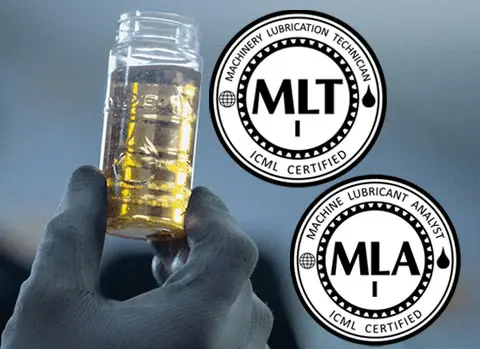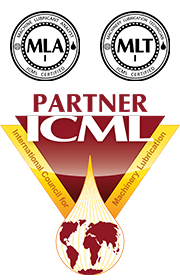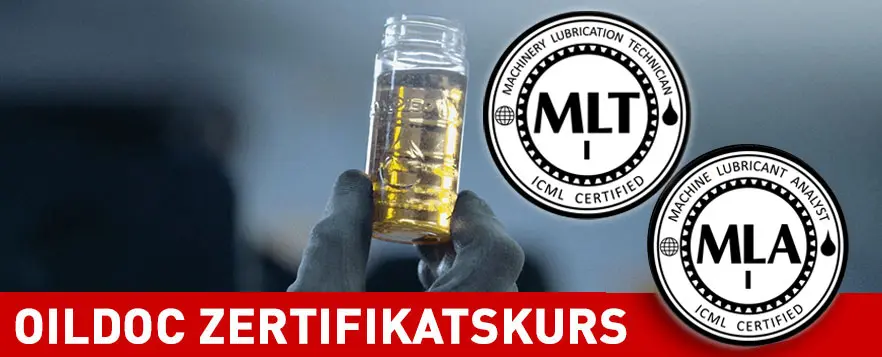Targeted exam preparation for
MLA I (Machinery Lubrication Analyst) und
MLT I (Machinery Lubrication Technician)
This seminar prepares you specifically for the ‘Machinery Lubrication Analyst (MLA I)’ or ‘Machinery Lubrication Technician (MLT I)’ exam. You will gain in-depth knowledge of lubricants, lubrication technology and oil monitoring in order to maintain machines efficiently and reliably.
This practice-oriented seminar offers comprehensive exam preparation for the MLA I and MLT I certifications.
You will acquire in-depth expertise in lubricants, lubrication technology, oil monitoring and analysis in order to maintain machines reliably and efficiently.
Certification by the ICML (International Council for Machinery Lubrication) confirms a high level of expertise in the field of machine lubrication, especially in the context of machine condition monitoring and maintenance.
Detailed information about the job description of an MLA (Machinery Lubrication Analyst) and the activities of an oil analysis specialist is available on our separate country page.

- Pass the MLA I and MLT I examinations with confidence through targeted preparation
- Understanding the fundamentals of lubrication technology for practical application
- Mastery of oil monitoring and sampling for early fault detection
- Competent lubricant selection, storage and handling in everyday work
- Optimisation of oil maintenance and compliance with purity requirements to increase plant reliability
- Knowledge building for beginners and consolidation for experienced practitioners

- Maintenance and repair specialists who require basic knowledge of lubrication technology
- Employees of service providers for oil maintenance, oil changes, system cleaning and lubrication support
- Service-orientated consultants and sales staff from the mineral oil industry
- Specialists from component and machine manufacturers with lubrication-related tasks
- Specialists from service laboratories for oil analysis
The certification test
Participation in the official MLA I or MLT I examination is voluntary. You have the option of taking the exam immediately after the seminar as an online test under supervision at the OilDoc Academy premises. The organisation and implementation will be carried out via the ICML platform Examity.
Detailed instructions for candidates taking the supervised online test are available here as a PDF file:
Instructions for candidates taking the supervised online test.
Important information regarding participation in the examination:
- Registration for the examination must be done independently and must be submitted directly to the ICML at least two weeks before the examination date.
- The examination fee ($275 USD as of 10/2025) is not included in the seminar price.
- Please note the current admission requirements of the ICML for the MLA I and MLT I examinations.









